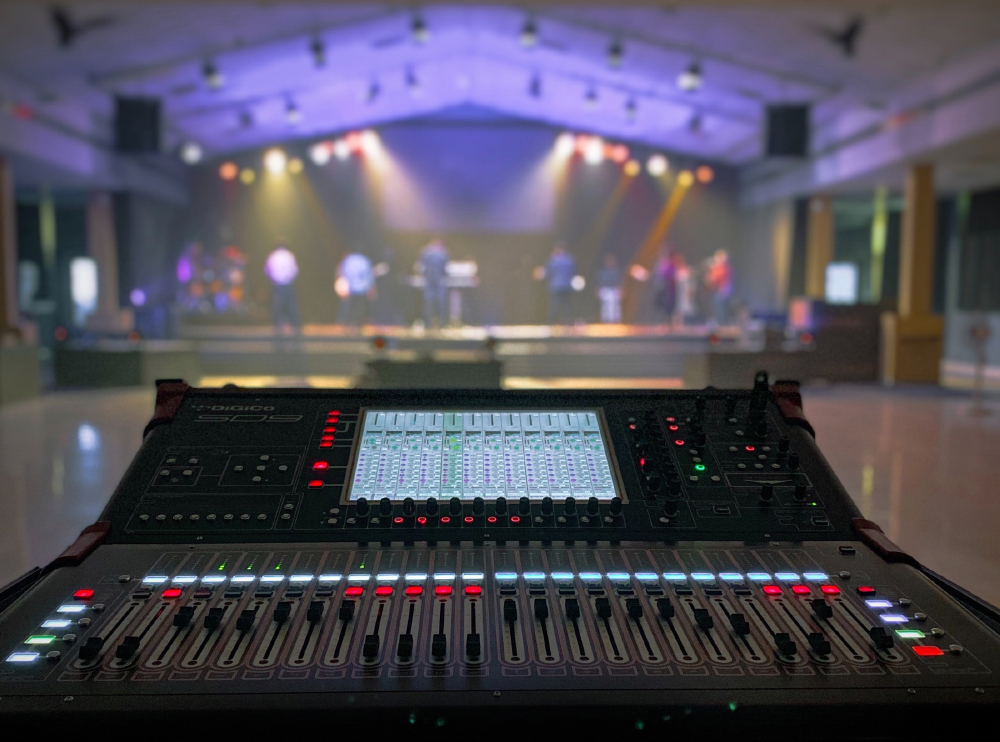Community, Leadership, Experimentation, Diversity, & Education
Pittsburgh Arts, Regional Theatre, New Work, Producing, Copyright, Labor Unions,
New Products, Coping Skills, J-O-Bs...
Theatre industry news, University & School of Drama Announcements, plus occasional course support for
Carnegie Mellon School of Drama Faculty, Staff, Students, and Alumni.
CMU School of Drama
Friday, January 26, 2024
Finding The Sweet Spot: Making The Best Of Mixing Console Placement Issues
ProSoundWeb: I’m sure that most sound engineers are familiar with the following scenario: you turn up to a venue and the mixing console isn’t where you expect it to be – it might be off to one side, underneath a balcony, in the very back of the room, up high in the stalls or stuck in a corner somewhere.
Subscribe to:
Post Comments (Atom)

3 comments:
Some venues really overlook their FOH console positions, especially the ones where I live. They, for some reason, decide to put the console in a closed booth at the top of the auditorium. This is extremely frustrating for me, as normally I can deal with unideal console positions by doing what Mr. Coules says and imagine I'm standing somewhere in the auditorium and mix of what it would sound like there. However, this is orders of magnitude harder when the venue puts the console in a closed off room with a set of monitors. I've mixed a musical in a venue like this and it was a nightmare, but I digress. The only saving grace is the proliferation of digital consoles which have remote control. It doesn't help that most remote control apps are trash, I'm looking at you Music Tribe, thank god Mixing Station exist to bypass your apps.
The first time I ever learned about life mixing and everything like that was in studiocraft. Now don't get me wrong I had heard about it before and have a basic idea of what it was and how to do it, but the first time I ever went in depth was with Zach brown. I really like sound, and it's something that interests me a lot. So reading this article was really interesting, and gave me a little bit of a better grasp of what the live industry does for sound technicians and audio engineers, as well as designers. I think it is interesting how much sound is underplayed and undervalued in the Live Theater World considering it is a huge aspect of shows. but I mean that is lots of theaters like the article said we'll have very inconvenient places for the board, and just think it's fine not knowing anything about how sound works. Now don't get me wrong I don't think this happens for just sound in any theater but I think that well-rounded directors, actors and Theater Company owners should all know how to Value each side of the performance. This includes Tech dramaturgy, directing, acting, and singing, everything. The moral of the story is to pay attention to the people you're working with and their needs.
I don’t really think I’m experienced enough in mixing to provide an educated response to this article, but I have set up my fair share of concerts and other live events. Most of my analog experience is with Soundcraft mixers, and my digital experience comes from Allen and Heath SQs and QUs. Allen and Heaths are nice because you can control them almost completely from an app by connecting the board to a wifi router and connecting to it on an iPad. It’s really handy for outdoor events like graduations where front of house is pushed off to the side. You can set everything up on the board, then grab the tablet and go out into the seats to fine-tune things. Honestly, though, I think that being able to mix in a tough spot (literally) is part of what makes a good sound person. Unless you plan on staying in the professional theater and concert world all the time, you’ll eventually be pushed to the side or towards the stage or something stupid. As someone who has no idea what they’re doing on a mixer, it’s those experiences that make a mixer better and more valuable.
Post a Comment